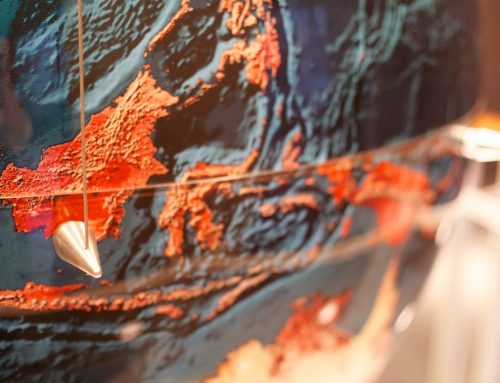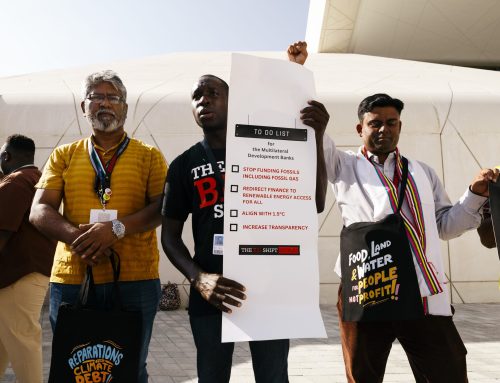Jakarta, August 21, 2018. Greenpeace Indonesia posted a message #WeBreatheTheSameAir on a billboard located on Jalan Jend. Gatot Soebroto (Taman Ria Senayan). A number of Greenpeace activists climbed the billboard to install Jakarta air quality data taken from an average of 5 air quality monitoring devices belonging to several different institutions, BMKG in Kemayoran, the US Embassy in Central and South Jakarta and 3 other tools owned by Greenpeace Indonesia in Rawamangun, Pejaten Barat and Mangga Dua Selatan.
The figures presented can also be accessed by the public through the website; https://www.airvisual.com/
Based on data processed from two PM 2.5 monitoring stations in Central Jakarta [1] and South [2], in the past month air quality in Jakarta has more than 22 days which fall into the Unhealthy category. Even according to the version of AirVisual air monitoring application [3], Jakarta is ranked as one of the bad air quality predicates among major cities in the world on August 11, 2018, where the daily average rate at PM 2.5 Monitor Station in Kemayoran Jakarta owned by BMKG shows number 87.3 μg / m³ [4]. While the ISPU monitoring station data on the same date in Jagakarsa, Kelapa Gading and Kebon Jeruk owned by the DKI Jakarta Government at that time also showed the Unhealthy Category [5].
“The government must find a real solution, because we are on the spotlight as the organizer of Asia’s biggest sports party. The solution to suppress pollution sources must be done in one clear command, because this will involved cross-Ministries and interests, “said Bondan Andriyanu, Greenpeace Indonesia Climate and Energy campaigner.
Bad air quality can endanger residents’ health and increase the risk of premature death. The most dangerous pollutant particles PM 2.5 can be inhaled and deposited on the respiratory organs. If exposed in the long term, PM 2.5 can cause acute respiratory infections, especially for children, to lung cancer. In addition, PM 2.5 can increase levels of toxins in blood vessels that can trigger strokes, cardiovascular diseases and other heart diseases, and can harm pregnant women because they have the potential to attack the fetus.
“This is a real health threat for all people, ranging from toddlers, children, world athletes who are currently visiting Jakarta to millions of workers who are daily going back and forth in Jakarta. This is our common interest, access to clean air is the right of people’s lives “, added Bondan.
Very high levels of air pollution have caused great health costs and economic losses. In 2010 the Ministry of Environment research said that out of Jakarta’s total population of 9,607,787 people, 57.8 percent were diseased due to air pollution. The total health costs to be paid by Jakarta residents reaches Rp. 38.5 trillion [6].
The description of ambient air quality conditions in certain locations and regions still refers to the Minister of Environment Decree Number 45 of 1997 (concerning the Air Pollution Standards Index) and does not yet include PM 2.5 parameters. While the PM 2.5 quality standard in the ambient air we breathe for 24 hours is stated in Government Regulation No. 41 of 1999 (65μg / m³) where this threshold is still almost 3 times weaker than the WHO standard (25μg / m³).
Given the danger of PM 2.5 in the air we breathe, it is time for Indonesia to have a more stringent PM 2.5 quality standard and prioritize the addition of air monitoring stations that also measure PM 2.5 numbers.
“This must be complemented by scientific studies in the form of Emission Inventory periodically so that the success of policies to improve air quality can be more measurable. The source of pollutants is not territory bounded. It must be taken into account the sources of moving and immovable pollution such as industries and power plants located outside Jakarta but which contribute significantly to Jakarta, “Bondan concluded.
Editor’s note:
- https://airnow.gov/index.cfm?
action=airnow.global_summary# Indonesia$Jakarta_Central - https://airnow.gov/index.cfm?
action=airnow.global_summary# Indonesia$Jakarta_South - https://www.airvisual.com/
world - https://www.bmkg.go.id/
kualitas-udara/informasi- partikulat-pm25.bmkg - https://llhd.jakarta.go.id/
pages/sensor/sensor.php - https://oto.detik.com/berita/
d-2594433/total-biaya- pengobatan-akibat-polusi- udara-mencapai-rp-385-triliun
Link Photo: https://media.greenpeace.org/
Contact:
Bondan Andriyanu, Climate and Energy Campaigner Greenpeace Indonesia, 0811-8188-182
Rahma Shofiana, Media Campaigner Greenpeace Indonesia, 0811-1461- 674







Leave A Comment